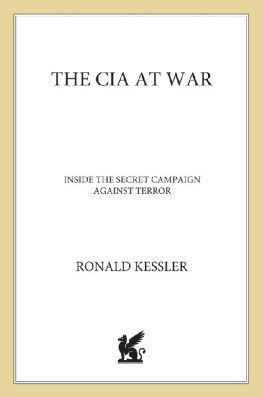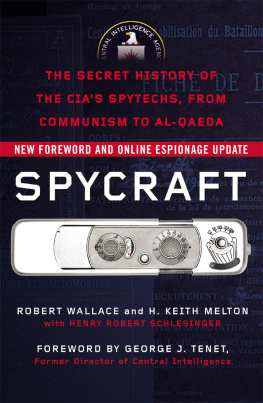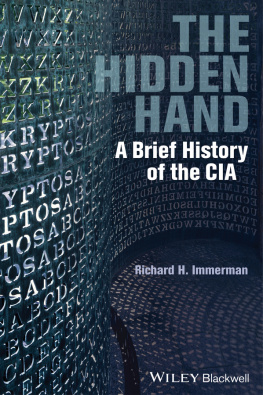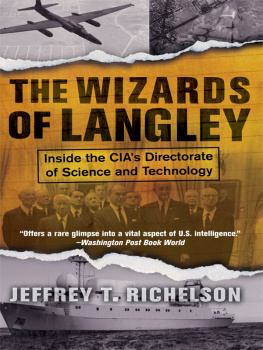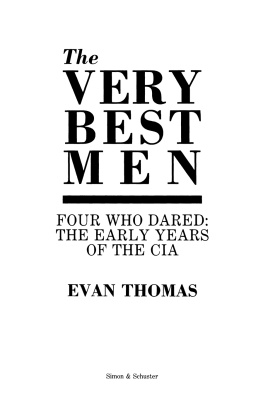PATRIOTIC BETRAYAL
PATRIOTIC BETRAYAL

The Inside Story of the CIAs
Secret Campaign to Enroll American Students
in the Crusade Against Communism
KAREN M. PAGET

Published with assistance from the foundation established in memory
of Amasa Stone Mather of the Class of 1907, Yale College.
Copyright 2015 by Karen M. Paget.
All rights reserved.
This book may not be reproduced, in whole or in part, including illustrations, in any form
(beyond that copying permitted by Sections 107 and 108 of the U.S. Copyright Law and except
by reviewers for the public press), without written permission from the publishers.
Yale University Press books may be purchased in quantity for educational, business,
or promotional use. For information, please e-mail
(U.S. office) or (U.K. office).
Designed by Mary Valencia.
Set in Janson O.S., Friz Quadrata, and Birch types by Tseng Information Systems, Inc.
Printed in the United States of America.
Library of Congress Cataloging-in-Publication Data
Paget, Karen M.
Patriotic betrayal : the inside story of the CIAs secret campaign to enroll
American students in the crusade against communism / Karen M. Paget.
pages cm
Includes bibliographical references and index.
ISBN 978-0-300-20508-4
1. United States. Central Intelligence AgencyHistory20th century.
2. United States National Student Association. 3. Anti-communist movements
United StatesHistory20th century. I. Title.
JK468.16P27 2015
327.1273dc23
2014021916
A catalogue record for this book is available from the British Library.
This paper meets the requirements of ANSI/NISO Z39.481992 (Permanence of Paper).
10 9 8 7 6 5 4 3 2 1
Dedicated to my late parents,
Robert (2011) and Maxine (2013) Eggert,
whose unconditional love and support
made everything possible
CONTENTS
Illustrations follow
PREFACE
FROM 1950 TO 1967, the Central Intelligence Agency ran a series of international covert operations through the U.S. National Student Association (NSA)most of whose members had no idea they were working for the U.S. government. The operation came to a halt in 1967, when Ramparts magazine published an expos of the covert relationship.
In 196566, my then-husband served on the NSA International Commission staff and was among those who knew about the CIA. As his wife, I also had been sworn to secrecy by agents of the U.S. government. Even after the Ramparts expos, we kept quiet, cowed by the threat of prison terms if we divulged information. I remember thinking then that someday someone would tell the whole story. Years passed, but no one did.
One day in 1982 or 1983, two young Washington lawyers approached me in my role as a foundation director on behalf of the United States Student Association, the successor to the NSA, to request a grant to obtain documents under the Freedom of Information Act. Unaware of my background, they were surprised when I immediately awarded them the funds. I also helped them search for someone to write a history of the NSA-CIA relationship. Several people expressed interest, but the timing was not right for them. A friend from NSA days finally said to me, Why dont you do ityou know more than all of us put together. A seed was planted. Decades later, it has blossomed.
Readers of this book will find a tension between the need to establish a solid historical record that scholars can mine in the future and rendering a good yarn. Since the NSA-CIA operation spanned continents and countries, often painful narrative choices had to be made. I decided to focus on well-known episodes of the Cold War, such as the Hungarian uprising, to reduce the need for background information. The perspective is American-centric, since the NSA is the prism through which this history is told. It is my hope that scholars from affected countries can build on this work and deepen the understanding of how the American operation influenced international student politics.
Since the sine qua non of Patriotic Betrayal is detail, the voluminous notes in the original manuscript posed a special problem, threatening to overwhelm the story. A happy compromise was reached: notes were pared to source identifications in this book, and a Web site was established (patrioticbetrayal.com) for those who want to delve deeper into the evidence or pursue the scholarly literature.
Creating a historical record has not been easy; wrenching protected information from the U.S. government requires sustained effort. I expected this problem. I did not expect the CIA to reclassify in 2001 documents pertinent to the NSA that were fifty and sixty years old and had been declassified under the twenty-five-year rule. Had I requested these documents earlier, they would have been available in the National Archives and Records Administration. A request in 2003 for two 1949-vintage reclassified reports took nine years to process. The re-declassified documents contained no bombshells or even revelatory information. To paraphrase an adage, Justice delayed is justice denied, accountability delayed is no accountability at all.
Despite these obstacles, Patriotic Betrayal is drawn almost entirely from original sources. The international papers of the NSA, long rumored to have been burned or carted off in the middle of the night, reside at the Hoover Institution at Stanford University, beautifully archived and immune to CIA purges. Since CIAprivate sector relationships were unique in that organizations had to bury them in public agendas, the NSA international papers amount to a blueprint, a guide to the architecture of the operation.
I also conducted extensive interviews, more than 150, which provided a constant check on the interpretation of the documents. Former NSA and CIA officials agreed to go on the record, perhaps because they had finally come to terms with their role, or perhaps, more simply, because someone finally asked them to. Surprisingly, these participants proved to be among the toughest critics of their own actions. This was true even of those who spent five or more years with the NSA-CIA operation or who became career CIA officers. Their reflections, offered on the record, correct a major weakness in the scant literature on the CIAs private-sector operations.
Finally, this research yielded unexpected insight into a contemporary issue. It offers a cautionary tale to those who urge a return to Cold War strategies to fight new enemies. Such advocates see parallels between fighting international communism and radical Islam, a position most explicitly laid out in a Rand Corporation study of 2007. Whether in pursuit of moderate Muslims or Western-friendly future leaders, advocatesand the wider publicwould do well to ponder the lessons offered here by veterans of Cold War covert action.
PATRIOTIC BETRAYAL
PROLOGUE
ONE EVENING AFTER DARK, sometime in mid-October 1965, I took a car ride that led me into uncharted territory. Two men, who over dinner earlier that evening had introduced themselves as former U.S. National Student Association (NSA) officials, drove my husband and me to a house somewhere in northwest Washington, D.C. The moment we entered the house, the phone rang. One of the men said he had to run an urgent errand and asked my husband to accompany him. I was left alone with the other man, who ushered me into a sunroom and took a chair opposite me.
Next page

